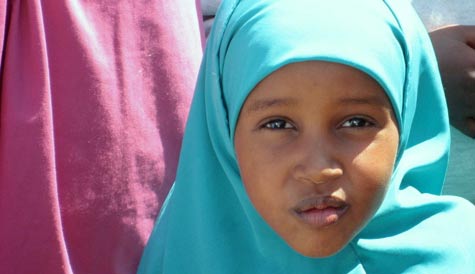
"I am selling my ears" (Dhagahaan iibinayaa), Abdillahi says, laughing.
The sharp light glimmers through the small opening in the tinted window, the wind is audible. It is early morning in Hargeisa, the self-proclaimed Republic of Somaliland, occupying the north-western territory of what the international community defines as Somalia. Somalia and Somaliland could not be further apart in conflict resolution experience and relative stability.
Abdillahi is still looking at me, his smile widens, his eyes sparkle. Chuckling, he leans towards me to emphasize his point. He had been telling me about the peace conference between the Somaliland clans in Borama in 1993, and had interrupted himself with the expression about selling his ears.
"That is what we say today about daily allowances from donors," he explains. "Our society is built on contribution, people here gets legitimacy through contribution. Everyone donated to the Borama peace conference. I gave 2,000 blankets. The clans competed over who could contribute the most militias and weapons to the new Somaliland army. We did it by ourselves. There was nobody to sell our ears to."
Abdillahi Mohamed Hersi is the Director of ALGASL (Association of Local Government Authorities in Somaliland). We were talking about space for political and social engagement, and about legitimacy of elected local government officials. That legitimacy in Somaliland comes from being able to contribute, he said.
He proudly narrates the tale of the Borama peace process, which brought an end to Somaliland’s engagement in the bruising civil war against the Siyad Barre regime that left Somaliland in ruins. Since that time, Somaliland has been ruled by its own governments under separate legal jurisdiction and has embarked on a slow process towards recovery.

In contrast, Somaliland has had four democratic elections with the 2010 presidential election monitored by the EU and deemed free and fair. With peaceful transition of power, Somaliland can compare itself to countries like Ghana and Botswana. While facing extensive challenges, in particular border disputes and insecurity threats, it trades livestock across the Gulf of Aden, its seas are free of pirates, and it strives to provide security and basic services to the Somaliland people. It is a parliamentary democracy with an Upper House of Elders (Guurti) which plays a significant conflict resolution role, and is ruled through a pragmatic combination of customary and common law.
"We all wanted peace," Abdillahi said. "But peace could not start with discussing power sharing. There were so many grievances.
"We started at the grass-roots level, and then worked ourselves up through the clan system. We solved conflict after conflict. We talked for 5 months. Every male had to contribute money to the peace process. We also counted all our Diaspora. They had to contribute too."
He pauses, still smiling, his eyes serious now. "What you see today," he says, "is strive for balance, for equilibrium between the clans. I trust my own clan but I also depend on the other clans. I must respect the mayor of that clan today so they can respect the mayor of our clan tomorrow."
On the process to establish peace and security in South Central Somalia, the tale is still being written. It is not one of own contribution, conflict resolution, and grievance redress. It is one of power sharing. It is about defining who has the right to rule over whom, and who is included and who is excluded. What ingredients will make it work this time?
Photos: Borama residents nearly two decades after the peace conference. Credit: Caroline Rusten.


Join the Conversation